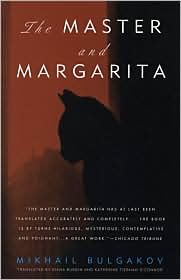The year was 1990. We used to live in Gol Market, New Delhi. An uncle of mine came to visit us with his friend Bhanu and Bhanu's wife, Savita. Apparently, they arrived on the day of Laxmi Puja. How do I remember? Well, I don't, but my mom does. She claims that she remembers details extremely well. Even in school, she would always remember where the answer to a question on an exam, for example, would be. She would remember the book, the page, the location of the text on the page, and even the day on which she had read the information. The only thing she tends to forget is the answer itself- what the text actually said! But this story isn't about my mother's memory, but about Bhanu and Savita.
Since they had come all the way from Bengal to visit us, and it was their first time in Delhi, we went sightseeing around the city (yet another time). Bhanu was very excited about documenting the trip and used the camera slung around his neck copiously. Such shutter-happiness was rarely seen, this being before the time of the digital camera. At the Qutub Minar, Bhanu asked everyone to huddle together in a group, with the tower in the background. He wanted the picture to be just perfect and felt that his wife's purse was not quite the right color for the composition, so he asked Savita to put it down for a minute while everyone posed according to his directions. A young boy, about 12 years old, offered to take the picture so that Bhanu could be in it too, but Bhanu declined the offer. "You can never trust people in big cities such as Delhi," he explained later.
Once Bhanu was satisfied with the picture, we walked towards the tower, admiring the architecture and talking about the news of a suicide attempt from the tower. The view of Delhi from the top of the tower was great and we were disappointed to see that the stairway was closed because of the latest jilted lover trying to deal with his pain by jumping off the top. Suddenly, Savita realized that she had forgotten to pick up her purse.
"How could you forget your purse?!" yelled an indignant Bhanu, to which a distressed Savita replied, "it was you who told me to put it down!"
"I told you to put it down, but I didn't tell you to not pick it up! Oh God, don't you realize, this is Delhi. People can steal your money while you are still holding your purse, minding your own business while standing in a crowded bus. And now, your purse is gone! You know money doesn't grow on trees. I work hard to make money, and you just let it slip out of our hands! I bet it was that kid, that urchin, who stole your purse." Convinced that the boy must be the thief, Bhanu walked off in a rage, in search of the boy. To our surprise, he even found the boy, not far from where we had originally seen him.
Bhanu took a firm hold of the boy's collar and demanded that the purse be returned. At first the boy looked confused, but he soon realized that a purse had been stolen and he was being held responsible. Denying his involvement, the boy tried to be helpful. "Was there a lot of money in it?" he asked. Bhanu was almost breathing fire by this time and mention of the money further stoked his anger. "Of course there was a lot of money, you little thief. Retun it with all its contents right now or I will take you to the police." The boy was also indignant, denied his involvement in the affair, and pointed out that he didn't have a purse in his posession. He was being accused without any proof and taking him to the police station would only waste everyone's time. He had a point and the rest of us explained this to Bhanu. Eventually, Bhanu understood, and, still seething, reluctantly let the boy go. We walked a bit further while Bhanu complained about Delhi, crime, hooliganism, lost youth and the loss of respect for elders among the younger generation.
A few mintues later, the boy came running back to us, this time dragging along another, slightly younger boy with him. "I told you I wasn't a theif," he exclaimed. "This guy picked up your purse. Please take it back and you can check to make sure that everything is intact. If not, we can go visit his parents." The younger boy thrust the purse towards us and a speechless Savita started to fumble through it. "Check everything properly," Bhanu instructed. Savita started taking everything out and we all saw that there were some slips of paper, some old bills, ticket stubs, a half-empty pack of tissues and about 18 rupees. Bhanu seemed satisfied with the inventory and decided to let the boys off with a scolding and a warning to never engage in such hooliganism again.
The older boy meekly asked, "Sir, can't I get a tip for my good work?"
"Are you crazy! It was your friend who stole the purse in the first place. You expect a 10 rupee tip out of this?! Fool!"
I'm sure the young boy deeply regretted his honesty at that moment.






